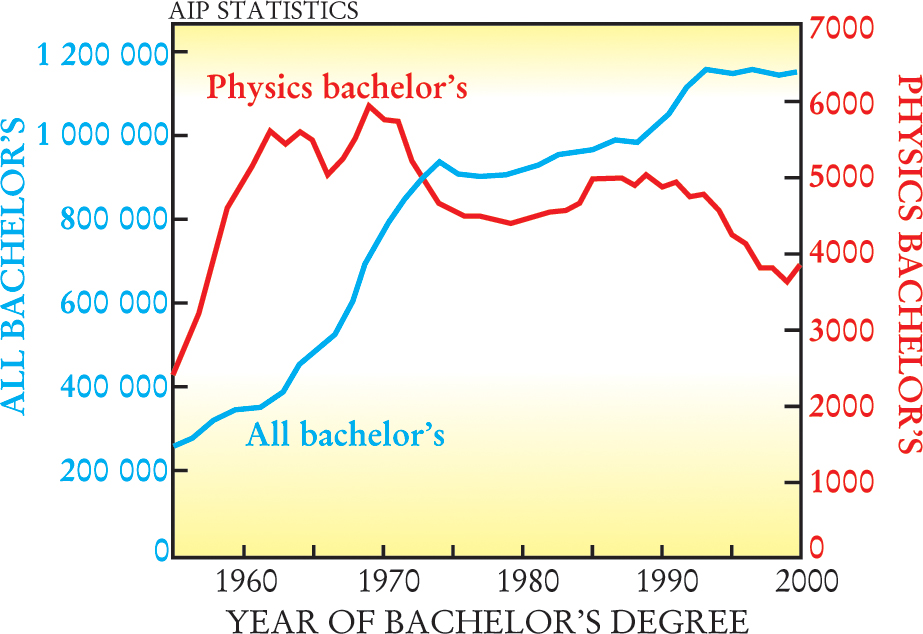Physics Bachelor’s Degree Production Rose in 2000
DOI: 10.1063/1.1506747
In 2000, the number of physics bachelor’s degrees conferred in the US was 7% higher than during the previous year, the first increase in nearly a decade. Similar increases are expected for 2001 and 2002, for which data are not yet available, according to a recent report from the American Institute of Physics. The report also cites growing enrollments in high-school physics classes as boding well for future undergraduate physics enrollments.
The total number of physics bachelor’s degrees awarded nationwide in 1999 and 2000 was 3646 and 3849, respectively, representing about 0.3% of the bachelor’s degrees awarded across all fields during those years. The increase in 2000 was mostly in large physics departments that also offer graduate degrees—the same departments that saw the biggest losses in the 1990s, when physics bachelor’s degree production fell by 27%.
Women earned 21% of physics bachelor’s degrees in the combined classes of 1999 and 2000, 6% more than a decade earlier. Of the 94% of 1999 and 2000 physics bachelor’s degree recipients who were US citizens, 14% were members of a minority group: 5% were African American; 5% Asian American; 2% Hispanic; and 2% Other. Nearly three-quarters of physics bachelor’s recipients participated in research during their undergraduate years.
The percentage of physics bachelors proceeding directly to graduate studies in physics was 35% for the combined classes of 1999 and 2000, slightly higher than in previous years. Of those, a striking 62% say they want to pursue an academic career.
In astronomy, that fraction is even higher: 81% of 1999 and 2000 baccalaureates who are pursuing advanced degrees in physics or astronomy have their eye on an academic career. In 1999 and 2000, universities awarded 195 and 202 astronomy bachelor’s degrees, respectively; one-third went to women.
These and other data can be found in the Physics and Astronomy Senior Report: Classes of 1999 and 2000, available free of charge from AIP, Statistical Research Center, One Physics Ellipse, College Park, MD 20740; email stats@aip.org

YEAR OF BACHELOR’S DEGREE
AIP STATISTICS





